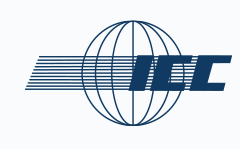Addresses of All Authors
Attn: Cameron Ward, School of Engineering
1971 University Blvd, Lynchburg, VA 24515, USA
Attn: Mark Horstemeyer, PhD, School of Engineering
1971 University Blvd, Lynchburg, VA 24515, USA
Attn: Tichomir Tenev, PhD
2212 S Chickasaw Trail PMB 402, Orlando, FL 32825
Author's Biography
Cameron Ward is currently a PhD student in the School of Engineering at Liberty University. He earned his Bachelor of Science in Mathematics from Liberty University as well as a Master of Education. He is currently the Director of Curriculum at Liberty University Online Academy, one of the largest K-12 online Christian schools. Ward is researching general relativity from the perspective of a creatively engineered universe.
Mark Horstemeyer, PhD, is the Dean of Engineering at Liberty University and brings 30 years of industrial, national laboratory, and academic experience after working at Owens Corning Fiberglas, Sandia National Labs, and Mississippi State University. Horstemeyer has demonstrated strong leadership in creating and implementing strategies into the research and academic process. He has published over 500 journal articles, conference papers, books, and technical reports with a citation impact h-factor of over 60 with over 12,000 total citations. He has been invited to give over 150 lectures throughout the world and has mentored over 150 graduate students and post-doctoral researchers.
Tichomir Tenev holds a PhD in Computational Engineering from Mississippi State University 2018, an MEng degree in EECS from MIT 1997, and BS degrees in CS and Math from MIT 1996. Since 1997, Tichomir has held senior positions at high tech companies, such as VMware and, presently, Google. He became a christian in 2004, and since 2014 began contributing to Creation Science research. Tichomir's PhD dissertation details an analogy between General Relativity and Solid Mechanics that helps intuit how the structure of space might account for hitherto poorly understood cosmological observations.
Presentation Type
Full Paper Presentation
Proposal
This research expands Tenev’s Cosmic Fabric Model (CFM) to include the large strain and inelastic cases which provide new insights into anomalies of General Relativity. CFM considers an ethereal universe (the "cosmic fabric") and applies continuum mechanics at the galactic and cosmic length scales to effectively recover equations from General Relativity where the Laplacian of strain corresponds to the Laplacian of the gravitational potential in the weak field approximation. While still at the very beginning of the research, this project explores several possible leads related to the inelastic behavior of the fabric. (A) With a Poisson ratio of 1, the fabric likely has a fibrous substructure on the lowest length scales, and inelastic strain will likely cause an aligned texture of the fibers which could lead to predictable behaviors of the fabric. (B) The thermodynamic behavior of the fabric may lead to explanations of why matter bends spacetime: if matter-energy induces a thermodynamic response from the fabric, causing it to soften and bend, then matter-matter interactions would propagate at a slower rate and the energy state of the fabric near gravitational wells may produce an acceleration of mass, essentially producing the lapse rate and kinematic effects observed by General Relativity. (C) If the cosmic fabric exhibits inelastic behavior due to cosmic stretching or damage, then anisotropic structure would be expected, including possibly the stretching and spins of macro-scale grains which may offer one explanation for the filament structure of galaxies observed at the higher length scales as well as possibly the generation of some or all black holes. Cosmic and functional structure, both macro- and micro-, implies design from God, the Great Engineer of the universe.
Disciplines
Astrophysics and Astronomy
Keywords
Cosmic fabric, general relativity, continuum mechanics, constitutive modeling
DOI
10.15385/jpicc.2023.9.1.33
Print Reference
627
Disclaimer
DigitalCommons@Cedarville provides a publication platform for fully open access journals, which means that all articles are available on the Internet to all users immediately upon publication. However, the opinions and sentiments expressed by the authors of articles published in our journals do not necessarily indicate the endorsement or reflect the views of DigitalCommons@Cedarville, the Centennial Library, or Cedarville University and its employees. The authors are solely responsible for the content of their work. Please address questions to dc@cedarville.edu.
Recommended Citation
Ward, Cameron; Horstemeyer, Mark; and Tenev, Tichomir G.
(2023)
"Expansion of the Cosmic Fabric Model to the Inelastic Case,"
Proceedings of the International Conference on Creationism: Vol. 9, Article 34.
DOI: 10.15385/jpicc.2023.9.1.33
Available at:
https://digitalcommons.cedarville.edu/icc_proceedings/vol9/iss1/34
Submission Type
abstract

